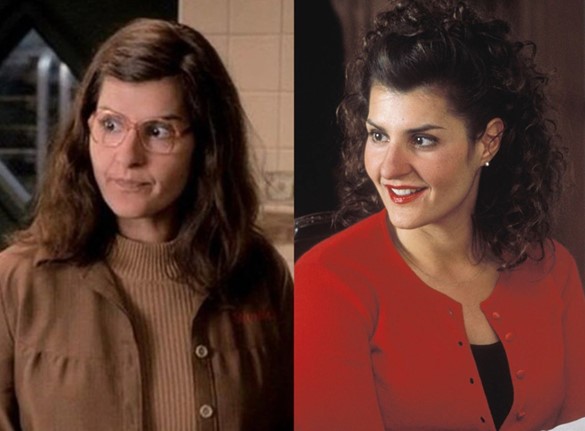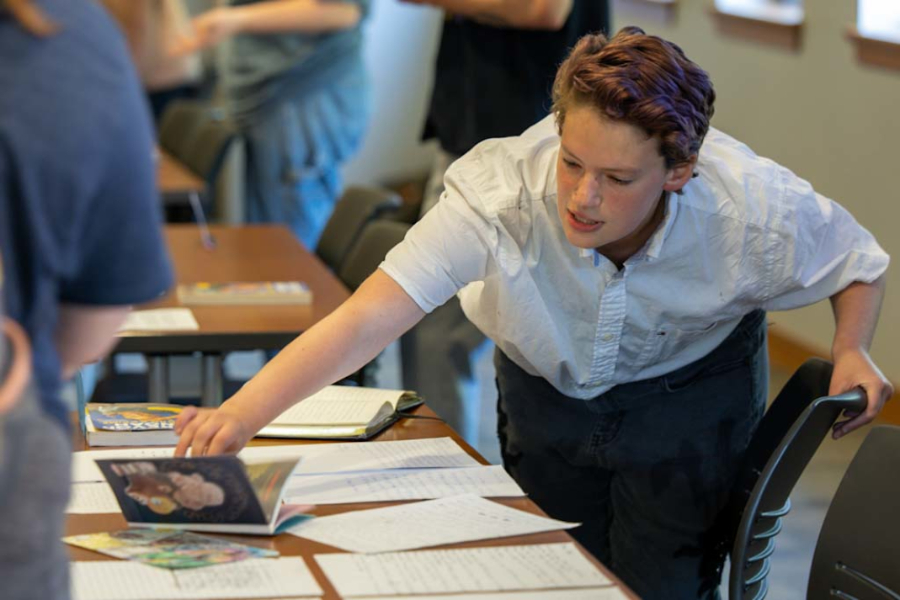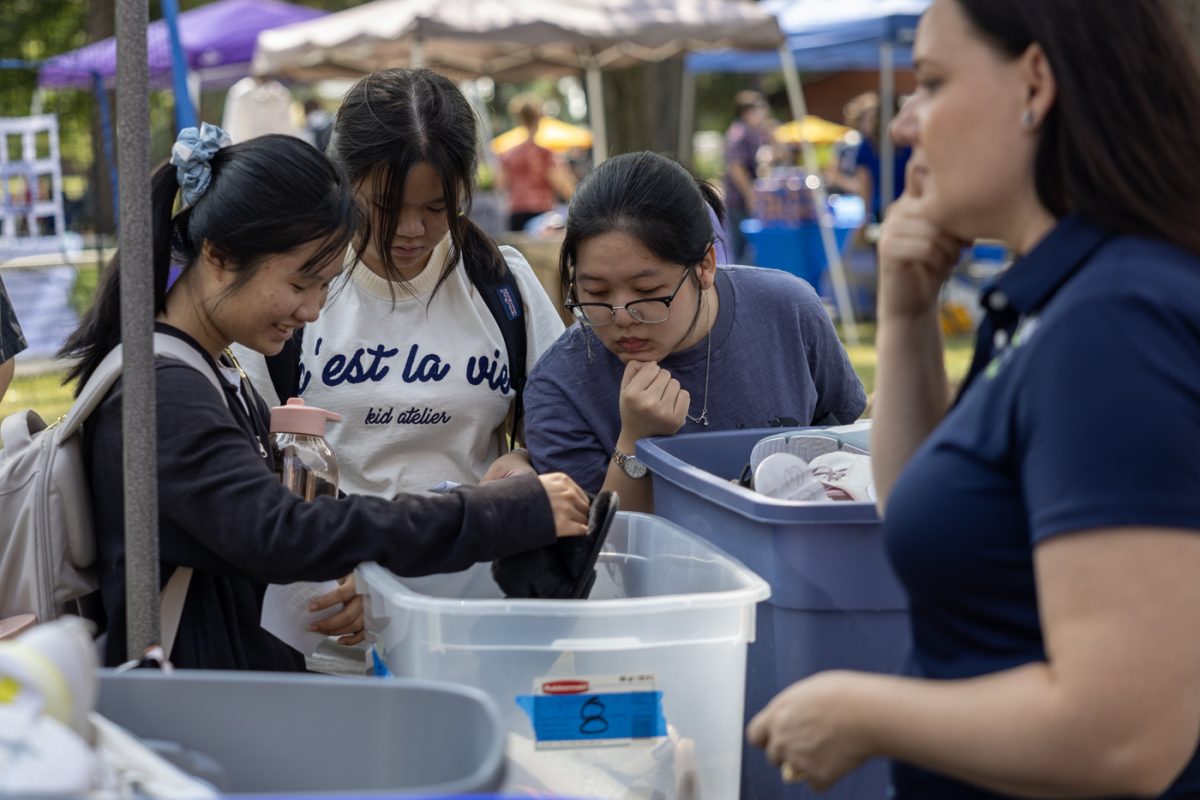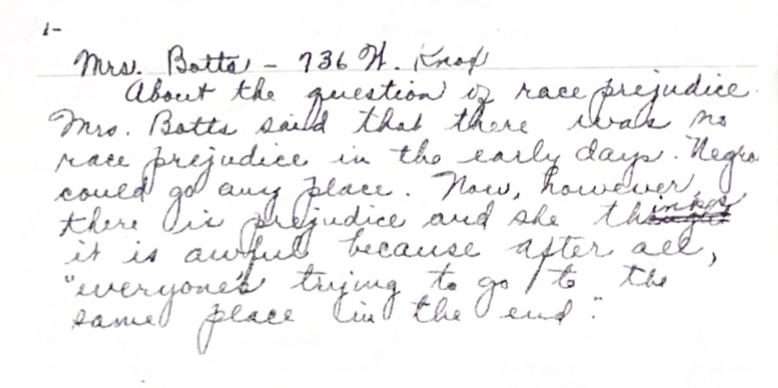I have always loved My Big Fat Greek Wedding. It was the first movie that I ever saw in theaters, granted I was two months old and slept through the entire thing.
I’ve seen the first film at least a dozen times since my first watch, and it has easily become one of my favorite movies of all time. I have always felt like it describes my mother’s side of the family perfectly. The film is a romantic-comedy, but focuses on the importance of family and the changing of traditions.
The first film centers around Toula Portokalos, the thirty-year-old daughter of two Greeks, raised in Chicago, Illinois. She is unmarried, much to the distress of her family, who desperately want her to find a ‘Greek man and have lots of Greek babies’ (this is a common theme).
In past generations of my own family, this idea of getting married quickly was very common for young Greek women. Unmarried women were often seen as a family disappointment, as value is usually placed on the men. Toula’s family is very traditional, in that they not only want her to find a husband, but they also want her to find a Greek husband.
Toula isn’t interested in rushing to get married. She has spent her entire life trying to please her parents, and she works tirelessly at her family’s restaurant, Dancing Zorbas, until one day, she decides that she wants to go to community college to get her degree.
It takes a lot of pressure, but her mother eventually convinces her father to let her go. While attending college, Toula tries to hide her Greek identity, fearing that it will set her apart from other students.
Toula is used to being forced to stand out, with her loud and overbearing family, so in an attempt to go unnoticed, Toula wears dark, frumpy clothing and round, oval glasses that hide her eyes while she attends school.
Over time, Toula decides that it is time for her to come out of her shell. She experiments with makeup and begins to speak up more in her classes. She slowly becomes more confident in herself and eventually sparks a connection with Ian Miller, a high school teacher, and the two fall deeply in love.
Toula’s parents, though initially delighted to hear about Toula’s new love, become distraught after finding out that Ian is not Greek. They have always stressed the importance of marrying a Greek man, and now feel betrayed by their daughter, as she has broken their traditions.
My Big Fat Greek Wedding plays a twist of the familiar ‘Romeo & Juliet’ trope, which lands on both Ian and Toula’s families recognizing and accepting their differences in culture and traditions, because ultimately the love for family conquers all.
I saw the newest installment of the series on Wednesday, with my roommate. We went to the latest showing at the AMC on Carl Sandburg Dr.
Somehow over the summer, I acquired the gold stubs membership for AMC so I only paid $2.50 for my ticket. I would say that the showing was worth every penny, but I don’t think my roommate, who paid the full price of eight dollars, would agree.
This film surrounds Toula, who is tasked with finding her late father’s childhood friends from the village island he grew up in Greece. Like all of the Greek Wedding films, the entire Portokalos family must embark on this journey together.
Unfortunately, this leaves out Toula’s mother, Maria, who seems to be going through some kind of illness that alters her memory. It is never quite explained what exactly is going on, but Maria jokes about the state of her memory, telling Toula that she doesn’t recognize her because she remembers her daughter being pretty.
Things are not entirely what they seem for the Portokalos family, Toula herself feels the burden of trying to appease her father, even after his death. The other members of the family have secrets of their own.
Ian and Toula’s daughter, Paris, who is now all grown up is home for the holidays from NYU, but fails to tell her parents that she is currently on academic probation. Toula’s younger brother, Nick also has plans to spread their father’s ashes without the rest of the family knowing.
These films have always been ahead of their time in a way. The second film features Toula’s cousin, Angelo, coming to terms with his sexuality, and eventually coming out as gay to his family. The third film features its first non-binary character, played by Greek nonbinary actor, Melina Kotselou. Kotselou plays Victory, the new mayor of Toula’s father’s hometown.
On the island, Victory makes a point to tell the Portokalos family that they welcome everyone in the village, regardless of how Greek they are. Victory urges the rest of the villagers to put aside their differences and welcome unhoused immigrants into their ghostown of a village.
The drama doesn’t stop there, as Toula and Nick find out they have a secret brother, Peter, on the island. He is the son of an old woman, Alexandra, who is revealed to be an old lover of Toula’s father. However, it is unclear if Alexandra was her father’s mistress, or just an ex-girlfriend from before he immigrated to the United States.
Alexandra makes a point that she doesn’t believe in secluding others, especially a Syrian immigrant, Qamar, whom she welcomes with open arms. That is until she finds out her grandson, Christos, intends to marry her.
This film felt very rushed. It was almost exactly ninety minutes in runtime, but it felt like I was watching one very long advertisement for visiting Greece. For a film with so many different plot twists, it barely manages to hold onto any plot at all.
It seemed that the film only introduced Qamar and Christos so there could be a wedding and it could fit into the theme of the first two films. It appeared as though the writer of the movie forgot about this point, as did I, since the wedding was quickly fit into the last ten minutes.
I wasn’t expecting much from this film, my expectations dropped significantly after the sequel came out in 2016. I feel like all of the character development that Toula and her family go through in the first film are completely lost in the films that follow.
Toula goes from shying away from her Greek heritage, to loving and accepting it as she unites with her husband, but in the second and third film, it is as if she had never had this journey. She forces her own daughter into the same stereotypes that her own parents put her in when she was her age.
At the end of the film, the characters ultimately decide that it doesn’t matter who is in charge of the family now, they can still operate without the guidance of Toula’s parents. As long as they are working together as a family.
In their essence, these films are supposed to be about embracing difference while still maintaining important traditions, showing that not all change is bad, and in turn some traditions are worth keeping alive. However, this film falls flat when it comes to this message, and proves that not every great romantic comedy needs to be a franchise.








